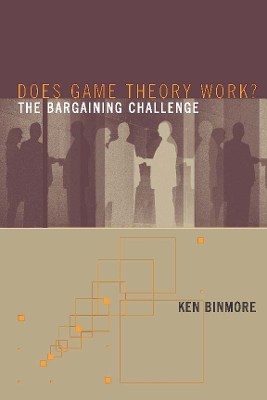A collection of Ken Binmore's influential papers on bargaining experiments, with the author's newly written commentary addressing the challenges to game theory posed by the behavioral school of economics.
This volume brings together all of Ken Binmore's influential experimental papers on bargaining along with newly written commentary in which Binmore discusses the underlying game theory and addresses the criticism leveled at it by behavioral economists.
When Binmore began his experimental work in the 1980s, conventional wisdom held that game theory would not work in the laboratory, but Binmore and other pioneers established that game theory can often predict the behavior of experienced players very well in favorable laboratory settings. The case of human bargaining behavior is particularly challenging for game theory. Everyone agrees that human behavior in real-life bargaining situations is governed at least partly by considerations of fairness, but what happens in a laboratory when such fairness considerations supposedly conflict with game-theoretic predictions? Behavioral economists, who emphasize the importance of other-regarding or social preferences, sometimes argue that their findings threaten traditional game theory. Binmore disputes both their interpretations of their findings and their claims about what game theorists think it reasonable to predict.
Binmore's findings from two decades of game theory experiments have made a lasting contribution to economics. These papers-some co-authored with other leading economists, including Larry Samuelson, Avner Shaked, and John Sutton-show that game theory does indeed work in favorable laboratory environments, even in the challenging case of bargaining.
Does Game Theory Work? The Bargaining Challenge, Volume 2
- ISBN10 0262026074
- ISBN13 9780262026079
- Publish Date 9 March 2007
- Publish Status Transferred
- Publish Country US
- Publisher MIT Press Ltd
- Imprint MIT Press
- Format Hardcover
- Pages 424
- Language English
- URL http://mitpress.mit.edu/9780262026079
